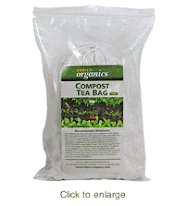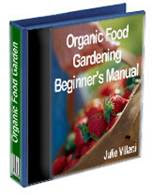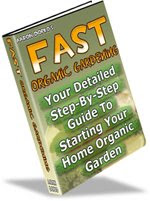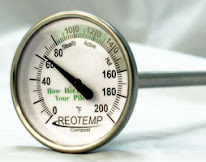Mulch your way to great soil and happy plants
>> Sunday, December 7, 2008
If you have looked at what kind of soil you're working with, how to improve and feed the soil, transplanting young seedlings and watering, then the next thing to consider is how to keep the water in the soil, right where the plants need it.
I think the best way to prevent moisture loss is to mulch. There are so many materials that we can use as mulch, because essentially any material placed over the soil can be called a mulch.
But because we are gardening organically, it's important to make sure that the mulching material we choose is organic and if possible that it has been produced organically.
I like to use a combination of a layer of compost on the soil, covered with a layer of pea straw.
Some of the benefits of using an organic mulch such as pea straw are:
that it slows down evaporation from the soil
need to water less often
it prevents soil erosion
as it breaks down, it feeds the soil
it helps prevent weeds
keeps your plants cleaner
So you can see it really is worth the effort of mulching. I don't even find it that much effort. It kind of tidies up my vegetable garden as it's laid down.
You'll find more detailed information on watering and mulching in Julie's e-book "Organic Food Gardening Beginner's Manual" by clicking here



